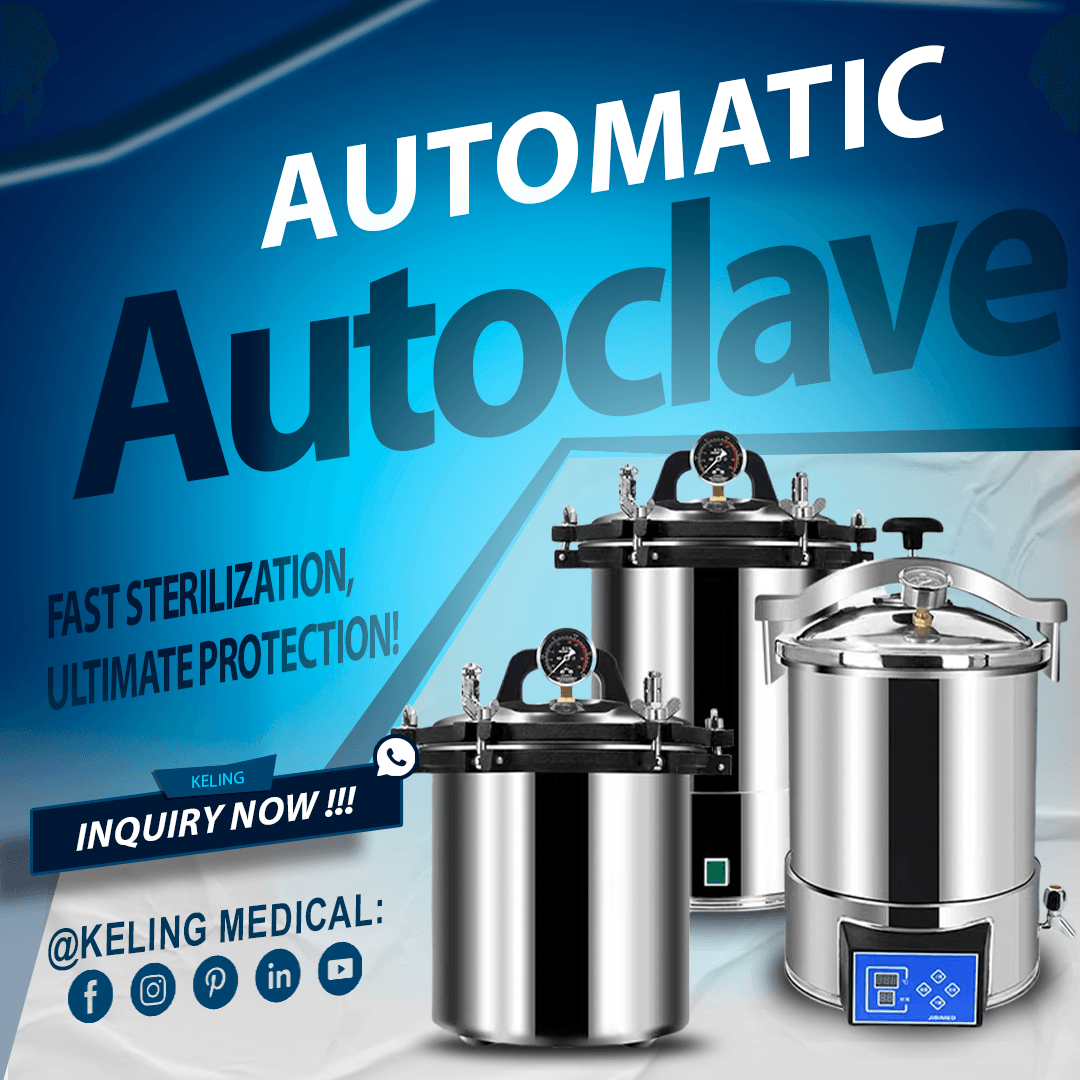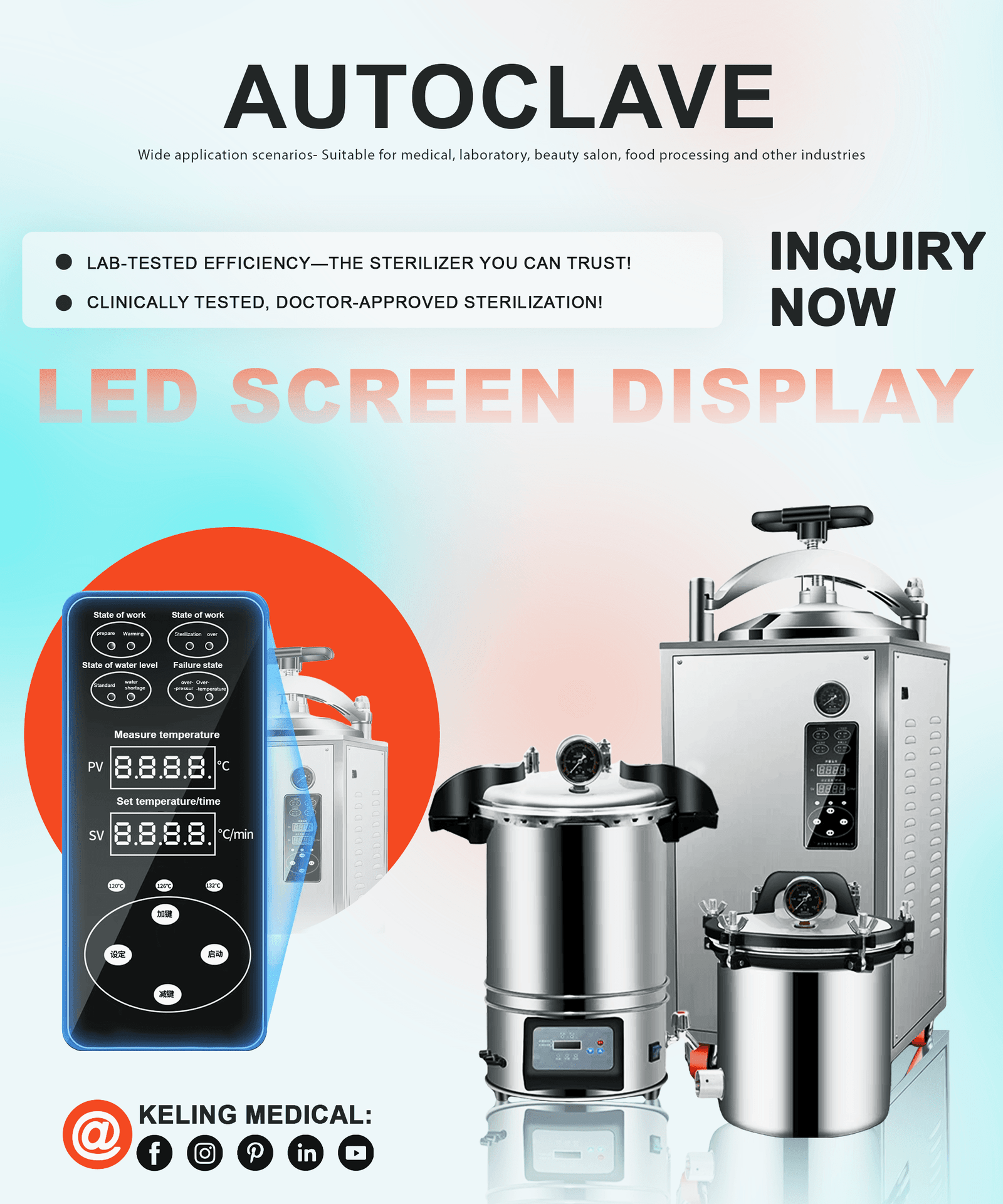
The fast-paced healthcare sector demands absolute safety and sterility of medical instruments as top priorities. Medical sterilization machines serve an essential function by upholding hygiene standards and infection prevention measures. The detailed guide explains how medical sterilization machines work and their advantages while offering maintenance suggestions for medical equipment distributors, dealers, and purchasers.
Medical sterilization machines function as vital equipment designed to remove all microbial life forms including bacteria, viruses, fungi, and spores from surgical tools and medical devices. Healthcare settings rely critically on medical sterilization machines because they make instruments safe to use and protect both patients and healthcare providers from infectious agents.
For more information on hospital sterilizers types, visit [Link to Article 2: Types of Hospital Sterilizers].
Various methods such as steam, dry heat, radiation and chemicals enable medical sterilization machines to function effectively. Understanding these machines’ functions is essential because each technique has distinct applications and possesses specific advantages and limitations that help determine the most appropriate machine for your needs.
Medical sterilization machines consist of several key components.
Chambers: Where the sterilization process takes place.
Control systems enable operators to monitor and adjust the sterilization process parameters.
Safety Features: Ensuring safe operation and handling.
Medical sterilization machines provide unmatched levels of safety and efficiency during operation. Medical sterilization machines assure complete cleanliness of medical tools which lowers infection risks while boosting patient safety. The operation of these machines results in time and resource savings for healthcare facilities through streamlined sterilization processes.
Healthcare facilities rely on medical sterilization machines for a secure and dependable way to maintain instrument sterility. Medical equipment vendors and buyers who understand the functions and advantages of these tools can develop better service offerings through informed decisions.
The main types include steam sterilizers (autoclaves), dry heat sterilizers, chemical sterilizers, and radiation sterilizers.
Consider factors such as the type of instruments you need to sterilize, the volume of sterilization required, and specific regulatory requirements.
Regular maintenance includes routine cleaning, calibration, and inspection of safety features to ensure optimal performance and longevity.
滅菌に関するお問い合わせやご相談は、こちらまでご連絡ください:
Eメール inquiry@shkeling.com WhatsApp: +8618221822482 ウェブサイト https://autoclaveequipment.com/
This article is designed to be a comprehensive resource for healthcare professionals looking to understand and invest in medical sterilization machines. By providing detailed insights and practical advice, it aims to support informed decision-making and enhance the quality of healthcare services.

はじめに 病院で使用されるオートクレーブ装置は、医療インフラにおける最も重要な投資のひとつであり、医療関連感染に対する防御の第一線として機能している。洗練された滅菌装置は

オートクレーブプロセスは、効果的な滅菌によってガラス製品や器具を保護するために、医療、研究所、研究施設などで利用されている重要な滅菌方法です。高圧蒸気はこの工程で病原菌を除去します。

オートクレーブプロセスは、効果的な滅菌によってガラス製品や器具を保護するために、医療、研究所、研究施設などで利用されている重要な滅菌方法です。高圧蒸気はこの工程で病原菌を除去します。